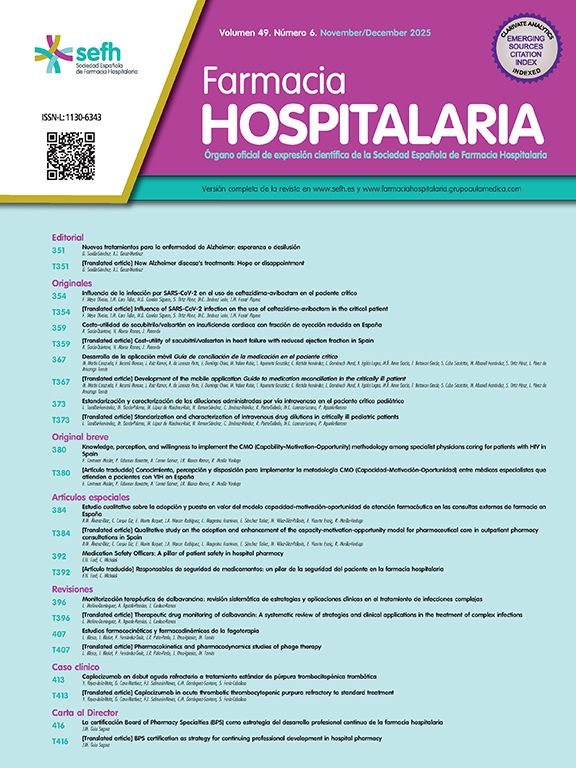Dear Editor:
We have read with interest the letter of Villalba-Moreno et al.1 that your journal published in 2017. The authors should be commended for the development of the Anticholinergic Burden Calculator Web Tool, a valuable contribution that will raise awareness of the risks of using antimuscarinic drugs worldwide.
The calculator (available at: https://www.anticholinergicscales.es, and accessed on 28/5/2019) is based on ten different anticholinergic scales identified in a systematic review2. Drugs included and rating of anticholinergic effect given differ widely across different published lists. This inconsistency was first highlighted back in 2013 in a study carried out in a medium- and long-stay psychiatric hospital, where poor agreement among them was shown3. Later that year, our team outlined the importance of adapting scales to local settings and updating data to include new drugs4. In the reference section of the Anticholinergic Burden Calculator, the authors mention an uptdate of the Anticholinergic Drug Scale (ADS) in 2013, but as far as we are concerned, the list, created in the United States (USA) in 2006, hasn't been updated. Curiously, some of the examples we used in 2013 (biperiden, fesoterodin, solifenacin) appear in the calculator citing the ADS scale. But these drugs were not considered in the original publication5. Biperiden, for example, is not available in the USA.
We believe the inclusion of biperiden, fesoterodin and solifenacin is a wise choice, as these drugs undoubtedly possess anticholinergic activity. But, if what we believe is confirmed, the reference in the calculator should be corrected.
Developing a consistent, updated and accessible screening tool to measure anticholinergic burden should be a priority for the scientific community. In this sense, we look forward to the improvement of the web tool, adding specific recommendations to help clinicians make better decisions.
FundingNo funding.
Conflict of interestsNo conflicts of interest.






